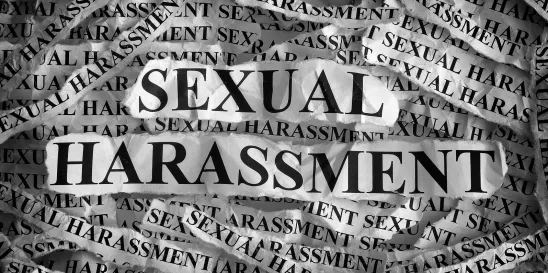On November 15, 2023, the U.S. Court of Appeals for the Sixth Circuit issued a decision that underscores the importance of ensuring proper steps are taken when Title IX complaints are first received by a school for sexual harassment and that post-incident sexual harassment allegations stemming from the student-on-student harassment are also promptly addressed.
S.C., a Tennessee student, sued her high school claiming to have been videorecorded while sexually assaulted by another student on school grounds. S.C. alleged that students disseminated the video throughout social media (and a widely accessed pornography site), which led to S.C. subsequently experiencing additional cyberbullying threats from her fellow classmates. S.C. also claimed the school was indifferent to this student-on-student harassment.
Specifically, S.C. alleged she reported the assault to the principal, who directed S.C. and her mother to the local police department’s sex crimes unit. The school’s Title IX coordinator was not notified, and no internal school investigation was initiated.
Clashing narratives also emerged as to what was said in the subsequent meeting between the principal and S.C., with the principal claiming S.C. admitted that the encounter was consensual (resulting in a three-day suspension). Later, S.C.’s mother reported that her daughter was receiving threats from other students, but the assistant principal again directed her to the police. S.C. withdrew from in-person instruction, entered an in-patient facility for treatment and resumed coursework remotely. When cyberbullying continued, S.C.’s family moved to a different county the following school year. S.C. alleged that due to the student harassment, her academic performance deteriorated drastically, she suffered from PTSD, began abusing drugs and alcohol, and engaged in self-harm.
Three other female students in the district also sued and alleged largely the same pattern of core events. The cases were consolidated in the federal district court, with each of the students bringing Title IX “before” claims (i.e., a Title IX heightened risk claim), alleging deliberate indifference by the school to misconduct before the student victims were harassed; Title IX “after” claims, alleging deliberate indifference to after-incident conduct; and equal protection violations.
The Sixth Circuit affirmed the district court’s conclusion that the school violated S.C.’s Title IX rights as it related to her “after” Title IX claim, rejecting the school’s argument that schools lack substantial control over student social media messages. Instead, the Sixth Circuit held the critical consideration when assessing post-incident threats “is the school’s disciplinary authority over the students.” The appeals court noted that school staff were aware both of the student threats made against S.C. and of the significant toll they caused on her education yet took no steps to remedy the violation.
The Sixth Circuit also remanded the case back to the district court to reconsider S.C.’s “before” Title IX claim, which was initially dismissed on motion by the district. The Sixth Circuit held that the district court failed to apply the proper standard of review, ordering the district court to consider whether plaintiff presented sufficient evidence under the correct standard (i.e., whether a reasonable jury could find that S.C.’s experience, including the initial assault, was the result of the school’s indifference to the problem of pervasive sexual misconduct in schools).
Some of the key takeaways from this case are as follows:
- Schools should implement and enforce a policy requiring all reports and complaints raising Title IX issues to be submitted to a designated Title IX coordinator, as required by the U.S. Department of Education.
- Post-incident complaints of harassment must be taken seriously and investigated, to the extent school officials have actual notice of these violations.
- Referring students to the police in response to reports of sexual harassment, sexual misconduct, or bullying is not sufficient to comply with a school’s independent Title IX obligations.
- Schools are liable for failing to exercise control over their students for conduct outside of school that contributes to student-on-student harassment within school, or where the conduct ultimately negatively effects a student’s ability to obtain equal access to educational programs and activities.





 />i
/>i
